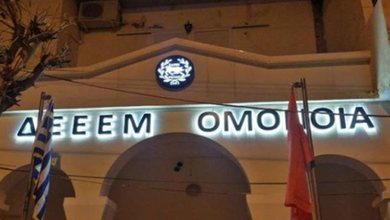
Bank executives frequently lament at conferences and outside of conferences about what they perceive as the overuse of physical cash in the Albanian economy and the underuse of electronic payment instruments. In one case, one of these bankers explicitly called for the country’s laws to be changed and for businesses to be required nationwide to install POS payment processing terminals.
A few days ago, Prime Minister Edi Rama became the next Albanian prime minister to surprise not only Albanians but also the entire world by declaring the ambition to make Albania a global vanguard, the first country in the world without physical money, within the next five years.
Such a bombastic statement cannot be seen otherwise than in the context of the need to draw attention to the context of democratic credentials severely damaged by what international observers described as "massive abuse of state power", "pressure on voters" and "control of the media" during the May 11 parliamentary elections.
However, while we should not worry too much about the risk that we will face the elimination of physical lek by 2030, we should not overlook the fact that the use of electronic money is an alternative that, in a normal situation, saves costs and headaches, while in abnormal situations, it exposes citizens to extortionate fees or the abuse of personal data for reasons of commercial interest, while the lack of non-partisan and professional institutions, or due to the excessive partisanship of the entire state structure, makes it impossible to protect citizens from these abuses.
First, cash has a cost. When printed in a printing house, it costs, while when sent to the user it requires transport with security conditions, which also costs. In contrast, electronic money is not printed and is not transported. It is managed by computer systems, which cost, but are much more convenient than holding physical money. However, in order for the benefits from the savings in the costs of physical money to be shared between providers and users, there needs to be competition. Something that, in the Albanian (and global) banking market, leaves much to be desired.
Businesses that accept bank cards, for example, charge commissions for each transaction. Banking service fees are more or less the same across all banks, suggesting coordinated behavior, which, under Albanian law and the laws of many normal countries, is illegal. Banks also use abusive practices, for example, forcing citizens to open separate accounts for bank cards with certain functions, using exchange rates with margins that are very abnormal for the modern world, or charging each other's customers excessively when they use POS or ATMs of banks other than the one issuing the card.
If you have no idea how electronic money works, I'll give you this simple explanation: If a citizen, a customer of bank A, uses his card to pay at a store that holds a pos and has an account with bank B, the electronic money passes through a system managed by the Bank of Albania from the citizen's account at bank A to the business's account at bank B. The system, called AECH, costs banks 4 to 8 lek per transaction [link]. The same thing happens if a citizen uses bank A's card to withdraw money from bank B's ATM. The cost of clearing the payment is 4 to 8 lek for the bank, but bank B, in many cases in Albania, charges commissions of 200, 400 or 600 lek, i.e. commissions hundreds of times higher than the costs.
The reason why banks use such discriminatory practices against non-customers is simple. Some people are reluctant to go to their own bank's ATM, others are indifferent to the commissions or are unaware of them. Such commercial practices are normally prohibited and in normal countries, regulatory authorities should have intervened to force banks to use non-discriminatory conditions. Such regulatory interventions are beneficial to both the consumer and the operators. Because, banks, instead of extending their ATM network throughout the country, can serve their customers through ATMs of other banks in certain areas. This does not happen because the regulatory authorities, the Bank of Albania as the manager of the payment system and the Competition Authority as the office that protects consumers from the uncompetitive behavior of banks, have not performed their legal functions.
However, the most easily recognizable situation of predatory behavior of banks seems to be in the exchange rate used both at counters and in electronic services. In Albania, foreign exchange is provided by two large groups: by banks and by foreign exchange agencies. Logically, banks, with their automated electronic service systems, are in a position to compete with foreign exchange agencies, which provide services in physical stores, where they pay rent, employees and where they process physical money. In contrast, electronic money exchange should cost much less. But in practice, the opposite happens. In foreign exchange agencies, the euro is sold with a margin usually no higher than 0.5% than the average and is bought with a margin no lower than 0.5% from the average. But if you use bank applications, they sell the euro 2 or 3% more expensive and buy it 2 or 3% cheaper than average.
As can be seen, the service that theoretically should cost less in electronic money applications actually costs five or six times more. The reason why banks do this seems to be related to the desire to extort a large sum from citizens' money by taking advantage of the fact that some of the conversions that citizens make are in negligible amounts and the citizen does not find it convenient to withdraw money to the bank to use the services of currency exchange agencies. Meanwhile, large businesses are offered special negotiated conditions for currency exchange. Small businesses, those that do not have significant amounts to exchange, will either have to waste time or have to accept the banks' extortionate margins.
Of all these, the abuse of the lack of financial education of citizens through very excessive foreign exchange rates, in cases where citizens use cards issued in another currency, makes it often more advantageous for businesses and individuals to use physical money compared to electronic money. Foreign tourists who are accustomed to using cards around the world come to Albania and face unimaginable fees when withdrawing from ATMs, fees that are charged by Albanian banks precisely because regulatory authorities have failed to do their job.
The consequences are not only for citizens, but also for the economy as a whole. The use of predatory practices in business brings profits at the expense of trust. But this is another topic. What is worth saying at present is that, if the state, at the request of banks, or due to the fantasy of the prime minister, sets conditions that force citizens to use bank services without having a valid alternative, these predatory practices become private taxes. In this context, an intervention to limit, for example, the right of business to use cash as a more economical alternative to the electronic money offered by banks, regardless of whether or not it can be sold as a platform against informality and other such tales, could create unpleasant monopolies, of the many from which Albanians already suffer, with long-term negative consequences for the entire economy./ Reporter.al






















